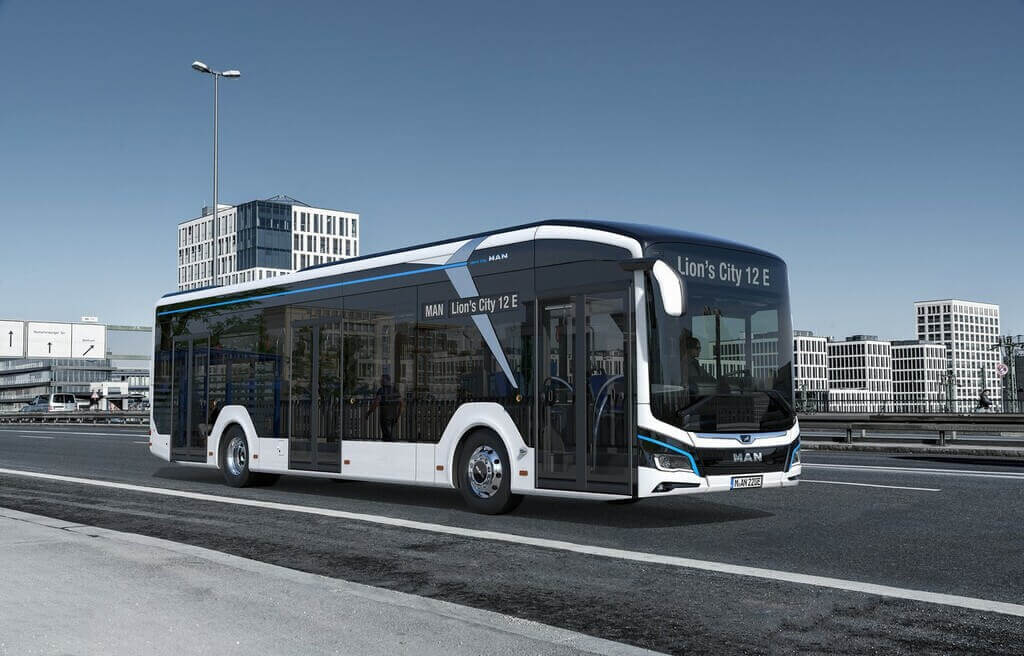Traton Group brands MAN, Scania, and Volkswagen Caminhões e Ônibus have committed themselves to an electro mobility offensive aimed at creating a complementing solution to the combustion engine.

“Our goal is to become the leading provider of e-buses,” said Andreas Renschler, Member of the Board of Management of Volkswagen AG and CEO of Traton at the Group’s Innovation Day in Södertälje, Sweden. This is why an increasing share of the Research and Development (R&D) budget is flowing into this technology and common brand platforms. “By 2025, we plan to have spent a total of more than €1 billion in electro mobility,” Andreas said.
However, increased market penetration by electro mobility is highly dependent on charging infrastructure and the costs of purchasing and operating a battery-powered vehicle — the decisive factor for forwarding companies.
“But our customers’ interest in e-mobility is clearly growing,” said Andreas Renschler. “In the mid-term, we expect that the total cost of ownership (TCO) of battery-powered commercial trucks used in distribution services and city buses will be comparable with vehicles powered by fossil fuels.” The reason: Battery cells will become less expensive, and their service life will grow. Furthermore, he said: “If all necessary prerequisites are in place at the right time, I expect for our Group, that in the next 10 to 15 years a third of our trucks and buses can have an alternative drivetrain, most of them fully electric.” And: “One of the prerequisites is that the infrastructure for alternative fuels and electricity must be fully available to guarantee seamless operation!”
One big strength of the Traton Group is its ability to spread development costs across the three brands. “In the Group, we are developing a common modular electric powertrain toolkit, that will be used in 2020 in the first serial produced all-electric city buses made by Scania and MAN,” said Christian Levin, the Chief Operating Officer and Head of R&D at Traton. “It can be individually modified depending on the brand and area of use. As a result, a maximum number of individual solutions can be produced with a minimum number of components and costs.” For the first time, Traton has also introduced a cross-brand development budget for electro mobility and brought together teams from all over the Group. They are working on the next generation of e-drive systems, software for battery management, and the compatible frame structure. Traton’s brands already hold more than 1,000 electro mobility patents — and, thus, some 25% more than in 2018.
Later in 2019, Scania plans to put a bus in operation which will electrically and autonomously transport passengers for Nobina in the Stockholm metropolitan area. The new electric MAN eTGE van has sold over 150 units in the past 12 months.
In addition to diesel drive systems, alternative drives and fuels like biofuels, ethanol or the gas technologies LNG and CNG as well as hybrid and plug-in hybrid solutions are playing a major role in efforts to reduce CO2 emissions. The three brands have a long tradition and good market positions in the area of alternative drives, with MAN, for instance, a major supplier for gas-powered city buses in Europe. Today, Scania claims to have the broadest range of alternative fuel-enabled vehicles on the market, ranging from bioethanol trucks and buses to vehicles using liquefied biogas. However, Traton projects that demand for electric vehicles will continue to rise over medium and long term because electric vehicles will become more affordable and cost less to maintain. In the process, they can take full advantage of their edge in energy costs.
“We have the products for today and tomorrow. We are in the starting blocks,” Andreas said. The executive urged political leaders to initiate in their respective countries ‘an incentive program for electric commercial vehicles and a European master plan for charging infrastructures’ that would ease customers’ transition to electro mobility.
Read more news here: cbwmagazine.com/category/news

